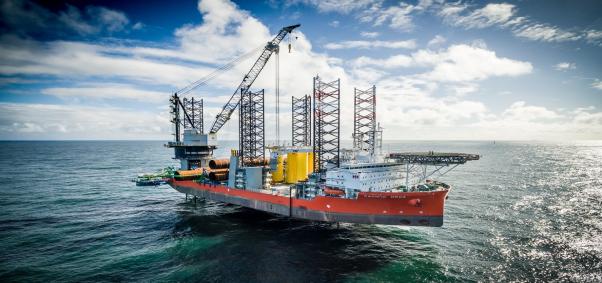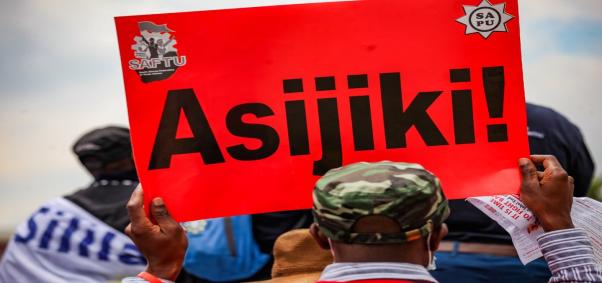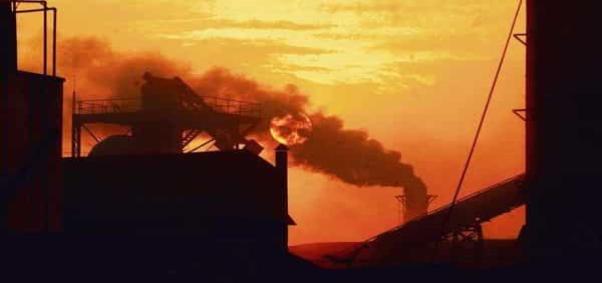
This article was published in The Hill on March 8, 2016.
Climate change: The critical topic presidential debates are leaving out
By Sam Adams
Sam Adams is Director of WRI United States. He was mayor of Portland, Oregon from 2009 to 2012.
Leonardo DiCaprio spoke about climate change for a longer amount of time at the Academy Awards than the presidential candidates have in the debates. In the 18 debates held so far, moderators have asked about everything from Super Bowl picks to flower arrangements, while posing only a handful of questions on climate. They ignored it entirely in the December debates, even though the world had just united around the landmark climate agreement in Paris. This must change.
This week, both Republicans and Democrats will participate in debates in Florida ahead of its primary. Florida is ground zero for climate change in the United States, with sea-level rise accelerating and other changes threatening the state’s beaches, infrastructure and fresh water supply. The Risky Business report found that around $69 billion of seaside properties in Florida will be at risk of flooding within 15 years due to impacts from climate change. We are seeing similar risks across the country.
People are paying attention. A bipartisan group of 21 Florida mayors, whose constituents are already coping with impacts of climate change, sent a letter to the debate moderators calling on them to ask questions on sea level rise and climate change. The news outlets-- Washington Post, Univision and CNN-- should follow-through.
Importantly, questions must go further than just whether climate change is happening—this is no longer in question. Ninety-seven percent of scientists agree that human-caused climate change is taking place, as do the National Academy of Sciences, NASA, and the Intergovernmental Panel on Climate Change. Top U.S. security leaders, including the Department of Defense, have labelled climate change a threat multiplier. A majority of both Republican and Democratic voters understand the overwhelming evidence underlying climate change. It’s time for more substantive questions about what policies and actions candidates will take to combat climate change, protect local communities, and, most critically, take advantage of the opportunities to shift to clean energy.
Are they prepared to build on the current U.S. climate action plan? What will they do to fulfill the climate commitments to the international community? Will they move forward with the Clean Power Plan? What other actions will they take?
Election after election has shown that the economy is the issue that matters most to voters. And we can’t talk about the economy without talking about climate change – the evidence is clear that the two are critically intertwined.
Delayed action on climate change would devastate the U.S. economy. A new estimate from Nature found that inaction on climate change could reduce the United States’ GDP by 36 percent by the year 2100. American farmers would be particularly hard hit. By the end of the century, states in the Southeast, lower Great Plains and Midwest risk a 50 percent to 70 percent loss in average crop yields for corn, soy, cotton and wheat.
There is good news though. The New Climate Economy project (WRI is the managing partner) has found that the right kind of climate policies can promote economic growth while helping U.S. households save money. Smart policies include improving energy efficiency, investing in sustainable infrastructure and encouraging innovation in clean technology.
The economic opportunities are vast. Last year, the U.S. solar industry created jobs 12 times faster than the overall economy, more than the oil and gas industries combined. Wind energy was the top source of new energy generation in 2015, surpassing 8.6 gigawatts of generation. There are already 73,000 wind power jobs in the United States, which could climb to 380,000 by 2030. It’s true that the transition from fossil to clean energy will not be easy for everyone. Some workers in energy-intensive sectors will have to change jobs and may need social and economic support for an interim period. But, the net effect on jobs from clean energy policies will be positive.
That’s why across the country we also see more cities and business taking action. For instance, 125 U.S. cities have committed to reduce emissions under the Compact of Mayors, including New York, Chicago, Los Angeles, and Portland (where I was the mayor from 2009 to 2012). More than 60 companies, including Nike, Microsoft, and Google, have committed to switch to 100 percent renewable power.
So far, we haven’t heard much talk about these issues on the campaign trail and certainly not in the debates. America’s citizens, cities, and companies care about the economy and climate change. It’s time for the debate moderators to ask the right questions and for our future leaders to make their vision clear.






